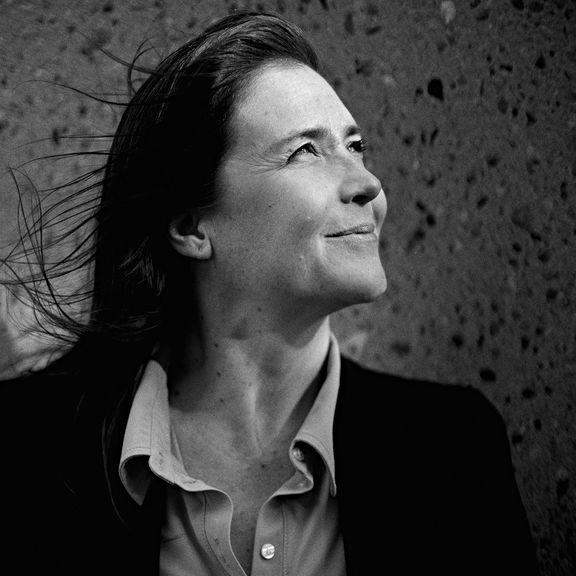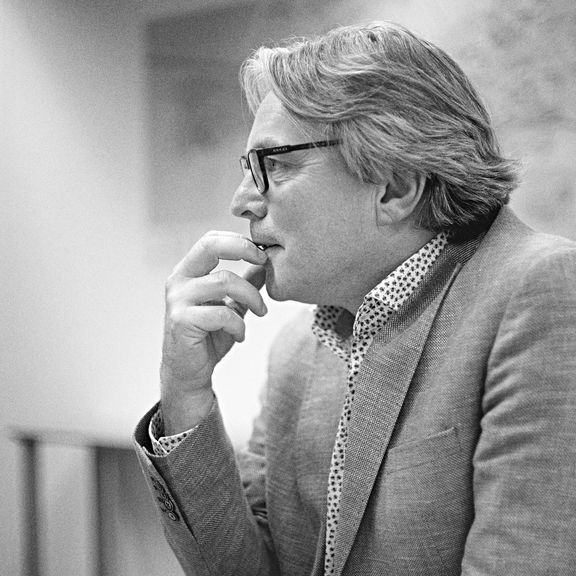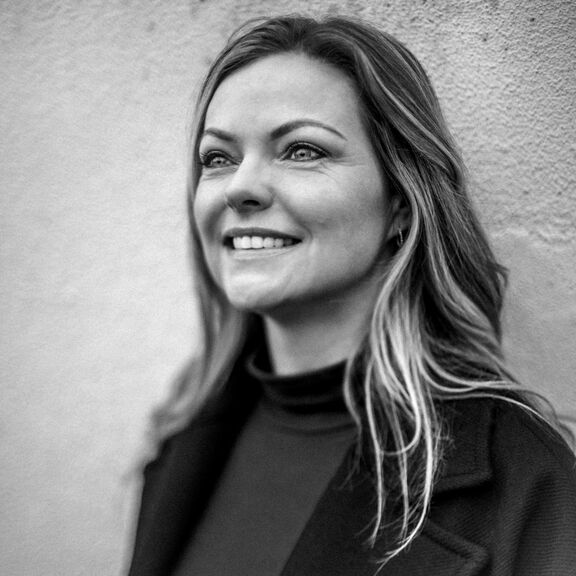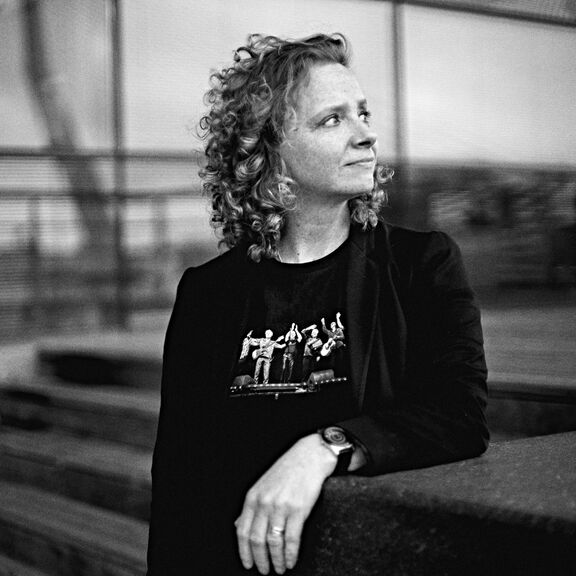‘We have passed the point of just talking about hydrogen. It’s really happening now’
Reading time: 5 minutes
He is going for an entirely sustainable Rotterdam port and society. Randolf Weterings, Program Manager Electrification and Hydrogen with the Port of Rotterdam Authority, said it right before the World Hydrogen Summit in 2023. One year later, that summit is just around the corner once again. What is the status of his goals?
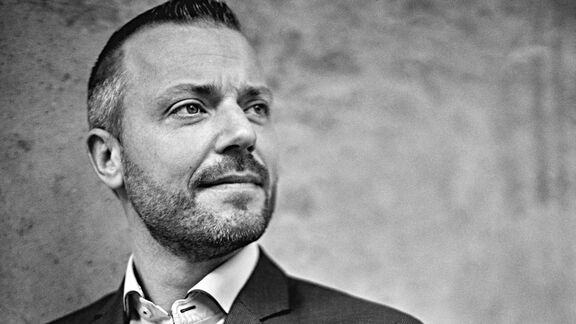
Randolf likes to think big and far ahead. Yet every now and again, it’s good to reflect on your achievements. And there have been plenty of those in the past year. “The greatest milestone of the past year is the decision to invest in the hydrogen pipeline through the port.” Randolf: “We expect it to be ready to be commissioned in 2025. That will turn the possibility to connect all port producers and users into a reality. The infrastructure really forms the basis. Now that we have that, we can really get things going.”
Always ambitious
To Randolf, limiting global warming to no more than 1.5 degrees by 2050 is the most important climate goal, even more important than the 2030 climate targets. “We were hugely ambitious in setting our goals for 2030 – 4.6 million tonnes of imported hydrogen annually. We now see that everything requires a bit more time.” Adjusting our ambition? “I don’t think so. Setting the bar high is a good thing.” Even though things may be taking a bit longer, projects are progressing in a big way. He mentions the Porthos nitrogen ruling – the project got the green light to start building.
“Right now, we are making blue hydrogen possible. We made some real progress there. But in the short term, a lot of regulations and laws will still be in our way. There are still a lot of challenges throughout the chain when it comes to hydrogen. Upscaling also remains a challenge. Or ammonia, for example: what happens if we are to receive large volumes of that? And what type of regulations do we need if parties are looking to import materials? A lot of things still need to be resolved.”
Fully renewable
“We are looking to shift from a huge fossil-energy system to a fully renewable system in a short period of time. It is even more complex than any of us thought. But that doesn’t mean we’re not going to make it.” Randolf: “In the past year, we took a few giant steps in connecting producers to buyers. It still isn’t enough for the import demand for green hydrogen in Europe, but we are making some significant progress.”
Randolf continues: “In two years’ time, European targets have increased a lot. Importing ten million tonnes of hydrogen Europe is aiming for, we’re not seeing that scale just yet.” Laughing: “When things are going well, the targets are increased.” He gives an example: “When Shell made a decision to invest in Holland Hydrogen One, everyone was wondering whether the scale-up from 10 to 20 megawatt would be realistic at all. Now we have reserved a new location for “Conversion Park 2”. This will increase the scale-up to 1,000 megawatt. Now everyone is starting to believe in it.”
2050 as the main starting point
A lot will be happening in the short term: “We expect the import of hydrogen to start moving increasingly . OCI is the first terminal that is expanding. And this year, we received our first ammonia. It was only a small amount, but it was import nonetheless.” Yet Randolf is mainly looking forward toward 2050. Key moments include the coming ashore of offshore wind as a source for hydrogen production, the construction of the hydrogen pipelines and the Shell hydrogen plant, which will be constructed on the Maasvlakte reclamation site and produce exclusively green hydrogen. But also the second hydrogen production site in the port of Rotterdam.
“The road to 2030 is clear. Now we’re looking at 2040 and beyond. We need a lot more wind energy. The infrastructure we are creating right now must become the basis for 2040 and even 2050. That will involve a lot.” So Randolf is also making an appeal: “We will have to start planning in the long term and for great volumes in order to do things efficiently. We have to start planning for 2050 right now. So we can make use of the available space in the port in the most efficient way.” He explains that focussing on 2030 not always leads to the best choices being made for 2050. “We have to take into account the challenge for 2050 as a whole now. That goes for us, but to all involved in the chain as well. We have learned so many lessons over the past few years, so let’s put them to good use.”
“We have to take into account the challenge for 2050 as a whole now. That goes for us, but to all involved in the chain as well."
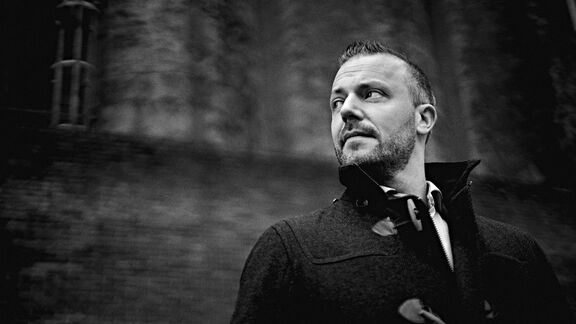
A solid business case
Randolf thinks the most important thing is for end consumers to have a business case. “That is only happening to a limited extent. The certification schedule is still not complete. How are we going to connect continents, and what guarantee would that mean for the future? At the same time, we’re noticing that the purchase price for materials has increased significantly. This also affects the business case.
Users such as the refinery, mobility and aviation sectors must be able to switch to green hydrogen or derivatives right now.” He warns: “We must arrange things properly, but we must also pave the way with each other to be able to start at all. If you shut things down completely now, we won’t be able to learn a lot because the parties will no longer be able to start.”
“From illustrations to pictures”
“What I'm proud of? Wherever I go in the world, everyone sees Rotterdam as the number one hydrogen hub. Additionally, the time of planning and illustrations is over. Now we have pictures of projects being built. It’s not just talk anymore – it’s actually happening.” He continues to work on projects that make a difference and have an impact on people and the environment. That drives him and earns him respect.
Meet Randolf Weterings at the 2024 World Hydrogen Summit in Rotterdam.
MAKING WAVES
In this series, you'll hear from people who are committed to a smart and sustainable port of Rotterdam, and our planet as a whole. Let them inspire you and help make that a reality.
